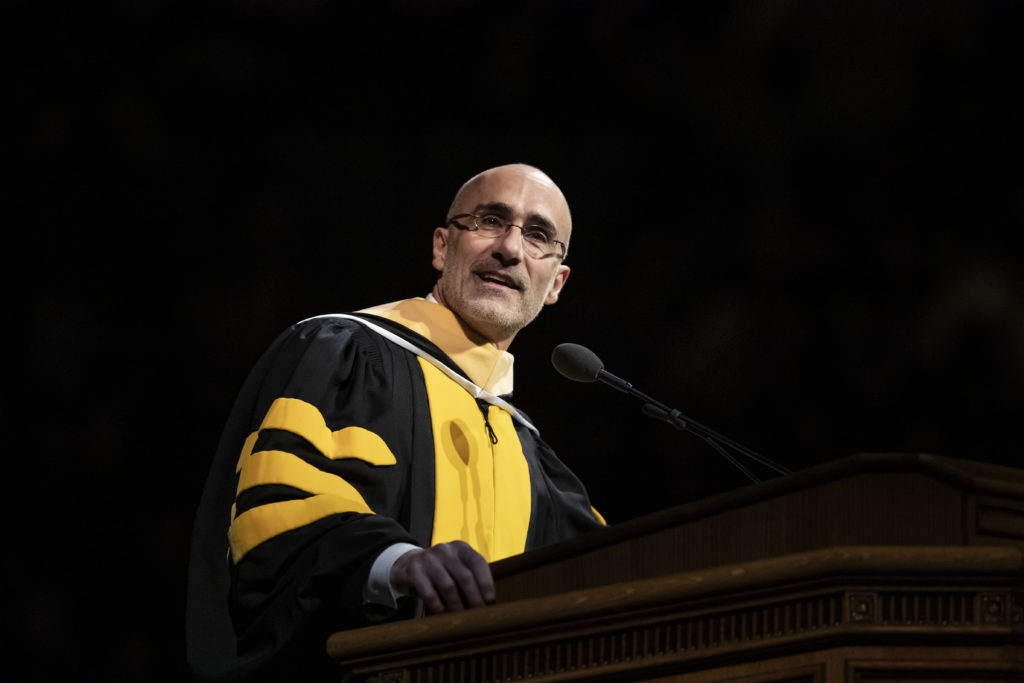
Editor’s note: This article pairs with “Young widow finds hope, healing after husband’s death”
Notable stories that emerged from BYU’s 2019 commencement include a posthumous degree and a remarkable speech by the recipient of an honorary doctorate.
Justin Hanks died in July 2018 after battling cancer for five years. His wife, Jennifer, walked the stage in the Marriott Center and received a degree in neuroscience in his name.
Such posthumous degrees are given to students who die as they are close to completing their degree. Usually a family member must go through that student’s college to get the degree.
Arthur C. Brooks, a name familiar with some due to his growing history with BYU, was the recipient of an honorary doctorate of social science.
Members of the BYU President’s Council submit and discuss candidates for the honorary doctorate. The council sends its chosen candidate recommendation to the Board of Trustees for approval. After approval, the council discusses a degree title, like social science. The president then notifies the candidate, said university spokeswoman Carri Jenkins.
Jenkins explained choosing a candidate “is a judgment about whether an individual’s contributions — in the academy, in business, in medicine, in social policy, etc. — merit recognition and affiliation with the university.”
An honorary doctorate is not a degree granted by the institution but rather a way the university honors the recipient, Jenkins said.
BYU has granted honorary doctorates to many notable figures such as Elders Richard G. Scott and Dieter F. Uchtdorf as well as Cecil O. Samuelson, who was BYU’s president from 2003-2014.
Along with receiving the honorary degree, Brooks also addressed graduates at commencement. Speaking at commencement is a common practice for those awarded honorary doctorates.
Brooks, who is the president of the conservative think tank American Enterprise Institute, remarked on the power of how people conduct themselves.
“Your greatest witness to the world as members of this community is the conduct of your life. Our nation and world need this — they need you — more than ever today,” he said.
Brooks described the role of contempt in current relationships and events throughout the world and each person’s life. He described contempt as including sneering, eye-rolling, sarcasm and hostile humor.
“America has developed a ‘culture of contempt’ — a habit of seeing people who disagree with us not as merely incorrect or misguided, but as worthless,” Brooks said.
He said the “culture of contempt” is harming the nation. But, he said, the solution is not to eliminate disagreement because disagreement leads to competition, which is good. Brooks offered love, which he described as “more radical than civility,” as a solution.
To implement this solution, Brooks said, people need to not run away but model a better set of values.
“It requires the agility to be in the culture, but not of it,” Brooks said.
Brooks concluded by reiterating the need for love and pointing out BYU students have what it takes to be this solution.




